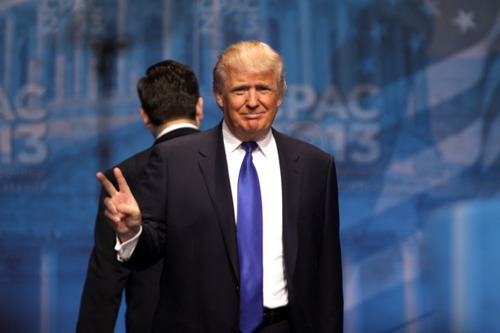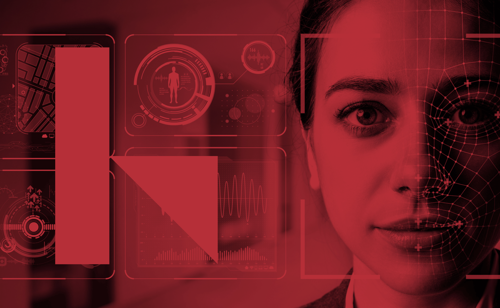The double-edged influence of health opinion leaders on social media
-
Sist oppdatert
1. april 2025
-
Kategori
Health experts and influencers on social media can play a role in reducing health problems. But there are also potential dangers.
SCIENCE NEWS FROM KRISTIANIA: Public health
Key takeaways:
- Ph.D. candidate Souad El Mghari explores how health opinion leaders on social media shape public perceptions and influence health behaviors.
- Their power to inspire positive changes comes with the responsibility to be credible and trustworthy.
- However, El Mghari questions whether we can truly trust these influencers, highlighting the impact of their self-presentation on their authority.
(The summary was created by AI and quality assured by the editors).
In the last decade, medical professionals, healthy lifestyle advocates, wellness coaches, and other health experts have been leveraging the reach of social media platforms for health promotion purposes.
A few of them were able to garner a large audience, hence achieving the title of health opinion leaders.
Followers view health opinion leaders as educators
In the social media universe, health opinion leaders are influential figures. Through their voices and messaging, they can shape public perceptions and impact behaviours related to health. Their impact is due in part to their perceived expertise in their field.
Existing studies have proven that opinion leaders are characterised by their followers as knowledgeable in their speciality. Some of their followers go as far as describing them as educators whose advice they appreciate.
By modelling positive health behaviours and providing practical guidance, health opinion leaders can inspire their followers to take steps towards improving their well-being. Research has shown that people are more likely to adopt healthy choices when they are endorsed by credible peers or role models.
Narratives that bond with the audience?
The World Health Organization defines health promotion as a process of enabling people to increase control over their health and its determinants and thereby improve their health.
In the digital sphere, tools as social media have recently been leveraged for health promotion.
Opinion leaders on social media might have more effect than even health organizations. The reason is, in part, that their message is available to everyone. As individuals, they have the capacity to share personal stories, experiences, and insights. Thus, by presenting narratives their audience can relate to, they are able to create empathy and connection in a way that health organizations do not. They also simplify health information. As a result, they encourage action.
Opinion leaders’ traits and characteristics give them an edge in getting their message through. Those include competence and trustworthiness.
With influence comes great responsibility
While the influence of health opinion leaders can be a force for good, it also carries great responsibility. With the low barrier to entry to social media, being considered an expert in your field is within reach.
As a result, health opinion leaders must not only engage, and educate in efforts to improve public health outcomes. They need to do so by presenting themselves as reliable and inspirational.
Let’s consider, as an example, nutrition opinion leaders on social media. Their feeds contain more than just infographics explaining the nutritional benefits of different foods. Their content is often a mix of the meals they and their families eat, their daily routines, and their professional achievements.
Therefore, the effectiveness of these opinion leaders in a health promotion context would not depend solely on the information shared. Rather, their self-presentation choices would influence their impact as experts deserving of the attention and trust of those who come across their content.
References:
Agdal, R. & Spjeldnæs, I. O. 2023. Developing Public Health Promotion Strategies for Social Networking Sites: Perspectives of Young Immigrant Women in Norway. International Journal of Environmental Research and Public Health, 20, 4033.
Indirani, S. S., Limilia, P. & Alam, P. W. (2022) Opinion Leaders and Health Information: A Systematic Literature Review in Indonesia. Proceedings Of International Conference On Communication Science, 2(1), pp. 737-744.
Koh, A., Swanepoek, D. W., Ling, A., Ho, B. L., Tan, S. Y. & Lim, J. (2021). Digital health promotion: promise and peril. Health Promotion International, 36, i70-i80.
Lynn-Sze, J. C. & Kamaruddin, A. (2021). Online Opinion Leaders in the Health Promotion Digital Era. Jurnal Komunikasi-Malaysian Journal of Communication, 37(4), pp. 295-309.
Text: Souad El Mghari, Ph.D. candidate at the Institute of Health and Training, School of Health Sciences, Kristiania University of Applied Sciences.
We love hearing from you!
Send your comments and questions regarding this article by e-mail to kunnskap@kristiania.no.
Siste nytt fra Kunnskap Kristiania
 Kunnskap KristianiaLes mer
Kunnskap KristianiaLes merSlik kan Vesten frigjøre seg fra autoritære og korrupte stater
Den geografiske konsentrasjonen av kritiske mineraler skaper strategiske utfordringer for Vesten. Kunnskap KristianiaLes mer
Kunnskap KristianiaLes merSix common characteristics of a crisis
Differences and similarities between event-based and prolonged crises. Kunnskap KristianiaLes mer
Kunnskap KristianiaLes merCan we leave fact checking to AI?
Companies are trying to convince us to use AI-based solutions for fact-checking. We found that human involvement remains immutable. Kunnskap KristianiaLes mer
Kunnskap KristianiaLes merHvorfor tollkrig nå , og hvem vinner ?
Tidligere handelskriger har fått skylden for Den store depresjonen på 1930-tallet. Er vi på vei dit igjen?





